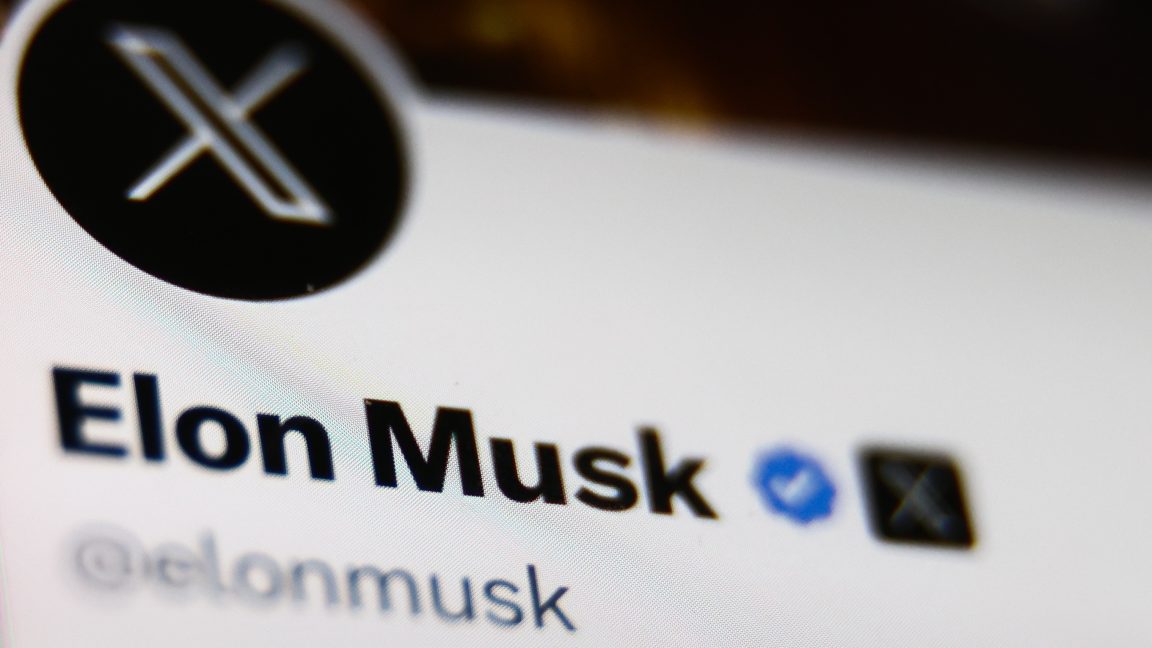“Something needs to change,” he posted on X.

Credit: Getty Images | NurPhoto
Elon Musk has objected to a lack of reciprocity in the US-China tech relationship, a rare criticism from the billionaire on issues sensitive to Beijing after US president-elect Donald Trump prepared to offer a reprieve to TikTok on a ban in the US.
Musk, who has long sought to maintain close ties with Communist party officials in China, a core market and production centre for his electric-car company Tesla, has for years been careful in his statements about Beijing.
But he said on Sunday that “something needs to change” after Trump said he would “most likely” extend a deadline for Chinese tech group ByteDance to divest from TikTok, which faced a ban under a US law that briefly forced it offline.
Musk said that while he opposed banning the short-form video app on free-speech grounds, “the current situation where TikTok is allowed to operate in America, but X is not allowed to operate in China, is unbalanced.”
“Something needs to change,” he said in a post on X.
Asked about Musk’s comments, Chinese foreign ministry spokesperson Mao Ning said on Monday that Beijing welcomed any company that abided by its laws and Chinese groups abroad were obliged to follow local rules.
Responding to Trump’s proposal to push TikTok, which began restoring service in the US on Sunday, into a joint venture, Mao said Chinese groups should “decide independently” on operations and deals.
Ars Video
What Happens to the Developers When AI Can Code? | Ars Frontiers
Musk’s criticism was mild compared with some of his fierce attacks on western politicians and recent intrusions into the domestic politics of countries such as Germany, the UK and Italy.
But it highlighted the Tesla chief’s potential conflicts of interest between protecting his business interests in China and serving as a confidant to the incoming president and a government efficiency tsar.
Tesla earned almost a quarter of its sales in the third quarter from China and exported even more vehicles from its Shanghai plant to third countries.
Some analysts believe Beijing is pinning its hopes on Musk as a potential intermediary with Trump, who has vowed to increase tariffs on imports from China. Chinese officials had previously discussed using Musk as a broker to resolve TikTok’s fate in the US.
Musk on Sunday also met Chinese vice-president Han Zheng, who will represent President Xi Jinping at Trump’s inauguration. The presence of a Chinese official as senior as Han is unprecedented at US presidential inaugurations, where Beijing is normally represented by its ambassador in Washington.
“Han met . . . Elon Musk, and welcomed US companies including Tesla to seize opportunities and share the fruits of China’s development,” China’s state-run news agency Xinhua reported.
Han also met business leaders from the US-China Business Council and the US Chamber of Commerce on Sunday, as well as Trump’s incoming vice-president JD Vance.
Han and Vance discussed the deadly synthetic opioid fentanyl, which successive US administrations have pushed Beijing to crack down on, as well as regional stability and balancing trade, the Trump-Vance transition team said in a statement.
US business leaders in the past have sought to play a moderating influence in often-volatile Sino-US relations, a role Beijing seems eager to encourage ahead of the second Trump administration.
Han described US business as a “backbone” of relations between the countries, and urged businesses to “play an active role as a bridge” in US-China relations, Xinhua said.
© 2025 The Financial Times Ltd. All rights reserved. Not to be redistributed, copied, or modified in any way.




